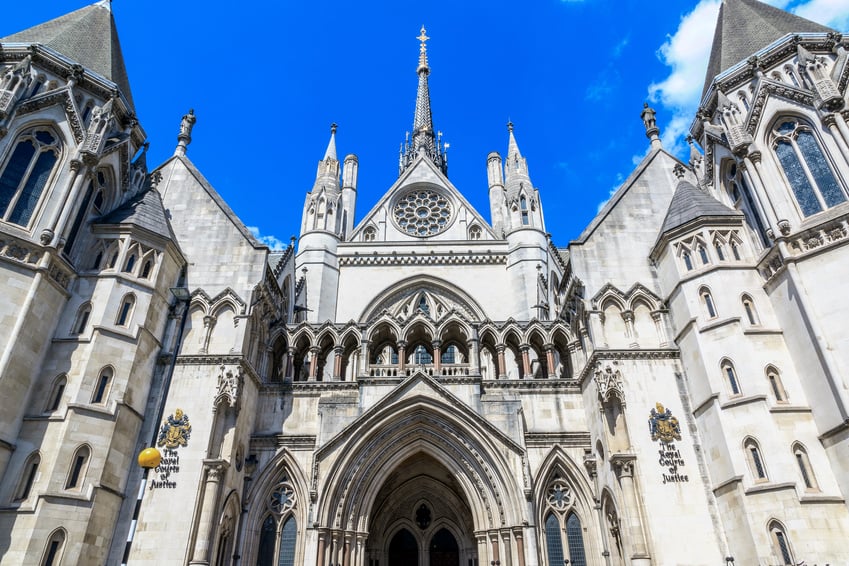In brief
The High Court has ruled that the UK failed to properly implement EU health and safety law by restricting protection from health and safety detriment to employees only. Workers should have the same protection.
Key takeaways
Employers engaging workers in their business should be aware that they might now be entitled to the same protection from suffering a detriment on grounds of health and safety as their employees. The current COVID-19 pandemic is likely to result in an increase of concern from workers and therefore increased risk for employers.
In-depth
The Independent Workers’ Union of Great Britain (IWGB) has about 5,000 members, who are predominantly low-paid, migrant workers and workers in the gig economy. During the first two months of the UK’s first lockdown, IWGB received around 144 COVID-19 related questions from members concerned about inadequate protection from COVID-19 and provision of PPE.
The IWGB brought an application for judicial review in the High Court seeking a declaration that the UK had failed to properly implement certain provisions of Council Directive 89/391/EC on the introduction of measures to encourage improvements in the health and safety of workers at work (“Framework Directive“); in particular, a requirement that workers who take appropriate steps in response to serious and imminent danger are not to be disadvantaged, unless they act carelessly or negligently. They also brought a claim in respect of the provision of personal protective equipment under a directive that is derived from the Framework Directive.
IWGB’s main complaint was that the Framework Directive requires Member States to confer certain protections on ‘workers’ whereas UK domestic legislation only protects ’employees’. Whilst this gap in protection has existed since 31 December 1992, the current COVID-19 pandemic has thrust the issue into the limelight.
The relevant UK domestic legislation is the Health and Safety at Work Act 1974 (in relation to the general duty) and section 44(d) of the Employment Rights Act 1996 (ERA) which provides that an employee has a right not to be subjected to any detriment for leaving or refusing to return to work in circumstances where they reasonably believed they are in “serious and imminent danger”.
High Court decision
The court upheld IWGB’s claim that the scope of protection under the Framework Directive extends beyond employees to workers. Following a thorough review of EU legislation and case law on the meaning of ‘worker’, the court made the following observations and conclusions:
- There is no single definition of worker in EU law: it varies according to the area in which the definition is to be applied.
- In the Framework Directive, ‘worker’ should be interpreted broadly and include anyone who falls within the autonomous EU law definition but subject to the particular exclusions in the Framework Directive, which exclude domestic servants. This would include ‘workers’ as defined in UK legislation. This interpretation would also be compatible with Article 31 of the European Charter of Human Rights under which a worker has the right to working conditions which respect their health, safety and dignity.
- Accordingly, the Framework Directive was not properly implemented in the UK under section 44 ERA which limits its protection to employees. It should also apply to those who are categorised as workers under UK legislation.
Comment
The decision confirmed that the Health & Safety at Work Act 1974 already imposed a general duty to protect the health and safety of workers which was wide enough to satisfy the Framework Directive. However, it has clearly found that workers should also have protection from health and safety detriment including where they leave work or refuse to return to work due to a reasonable belief in serious and imminent danger.
It has been reported that the HSE will set out its formal response to the decision shortly. If the decision is not appealed, the next step is likely to be amendments to the UK legislation to extend the protection to workers. In the meantime, however, tribunals may be asked to construe the reference to ’employee’ in section 44 ERA broadly to give effect to this decision. In addition, the HSE’s response may clarify whether it will start to take enforcement action against employers who do not discharge their obligations towards workers.
The decision could also impact other rights which derive from the Framework Directive. However, after 31 December 2020 – and subject to the terms of any free trade agreement with the EU – new legislation could be introduced to reverse the effect of this decision.
Case information
The Queen on the application of the Independent Workers’ Union of Great Britain v The Secretary of State for Work and Pensions, The Secretary of State for Business, Energy and Industrial Strategy and The Health and Safety Executive, High Court, 13 November 2020.



